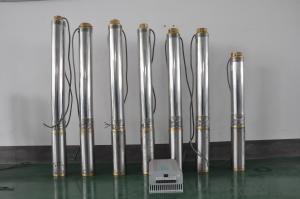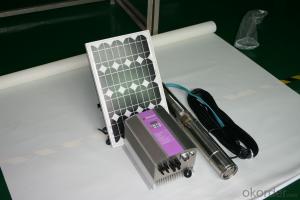DC Solar screw water pump
- Loading Port:
- Shanghai
- Payment Terms:
- TT OR LC
- Min Order Qty:
- -
- Supply Capability:
- 300 set/month
OKorder Service Pledge
OKorder Financial Service
You Might Also Like
how is the rotor made:
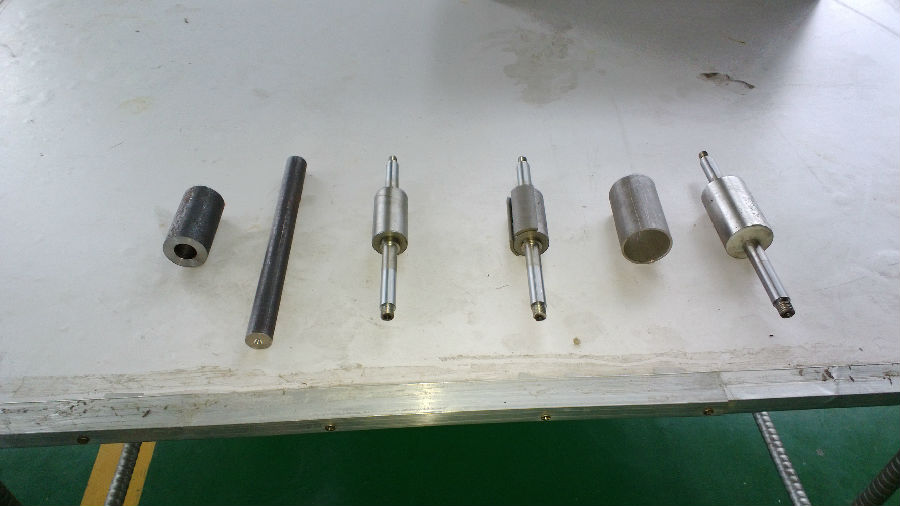
how is the motor made:
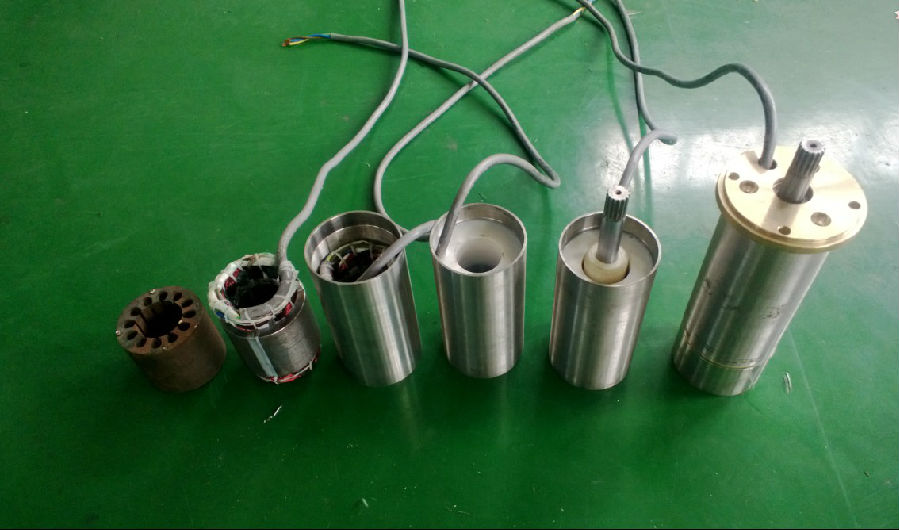
the pump :
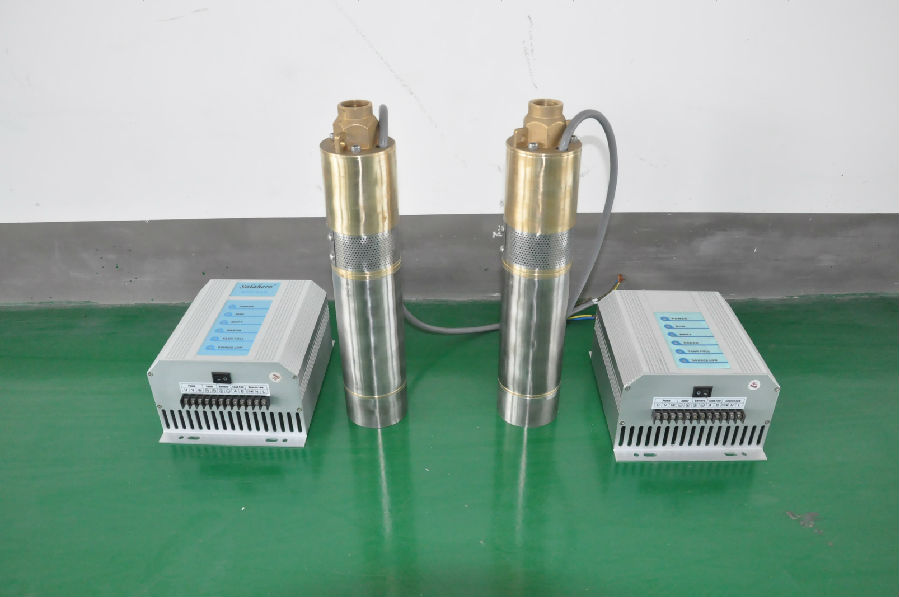
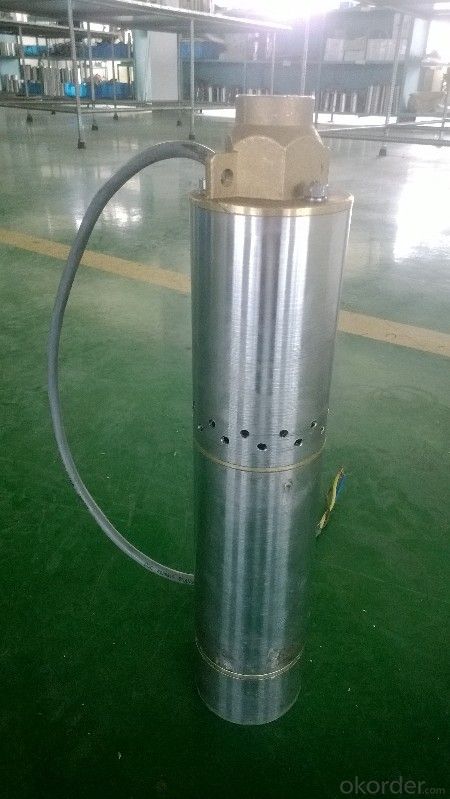
controller terminal connection:
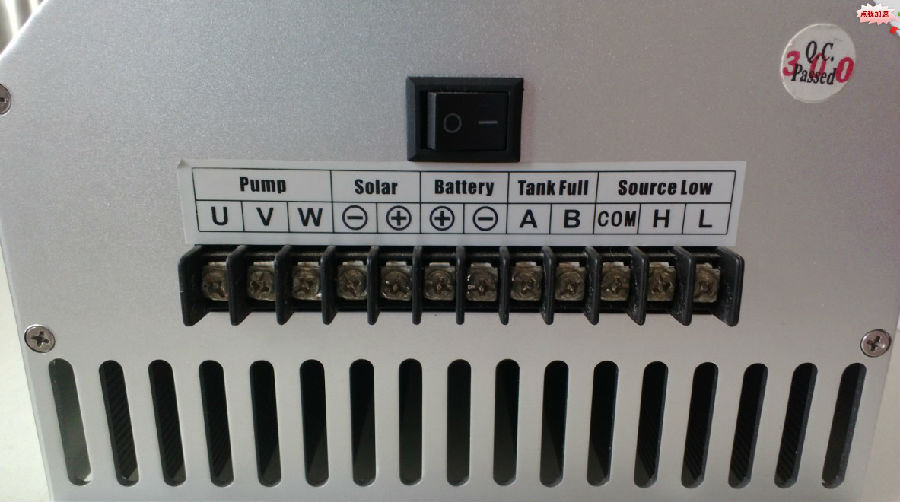
Motor 24V:
1 matainance-free brushless DC motor
2 water filled
3 premium materials,Stainless steel SS304
4 no electronic in the motor
rated power:0.1-0.15kw
effiency:more than 95%
motor speed:1750rpm
isulation class:F
enclousre class:IP68
submersion: max 250m
Controller SPC200:
power:max.150w
input voltage:max.36V
motor current:max.8A
effiency:max.95%
ambient Tem:-20C-----50C
enclosure:IP54
The permanent magnet:

the helical screw:
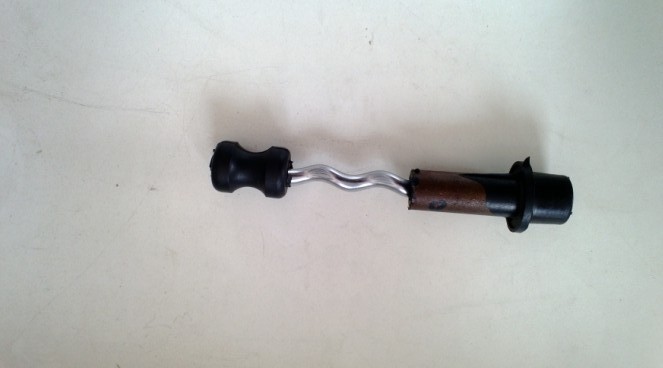
controller box:
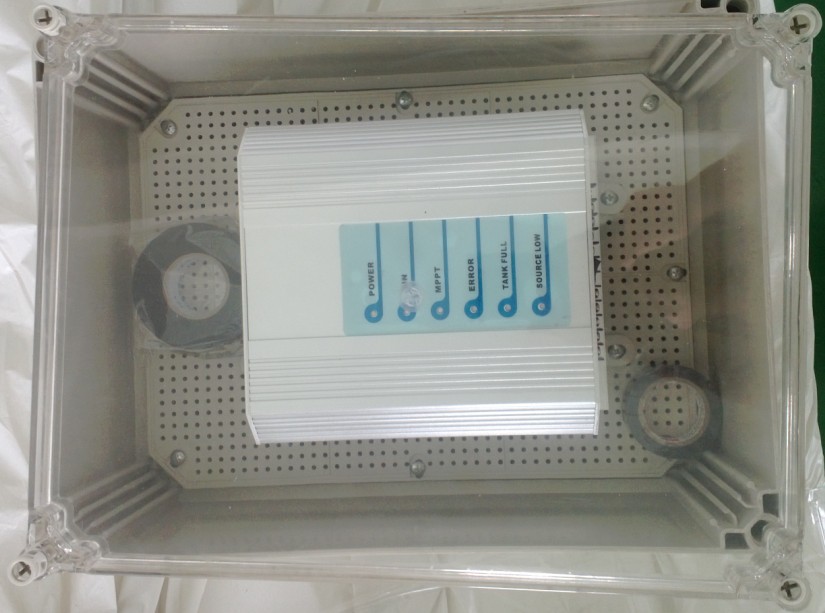
the senors:
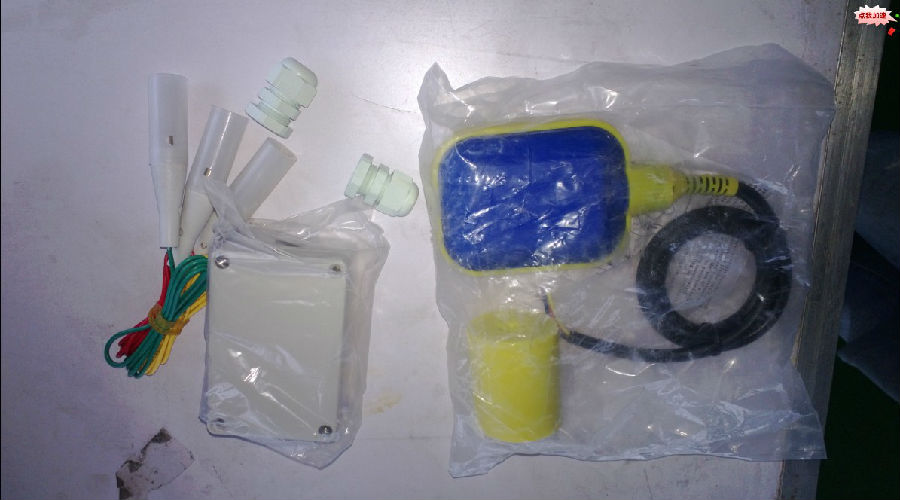
the test:
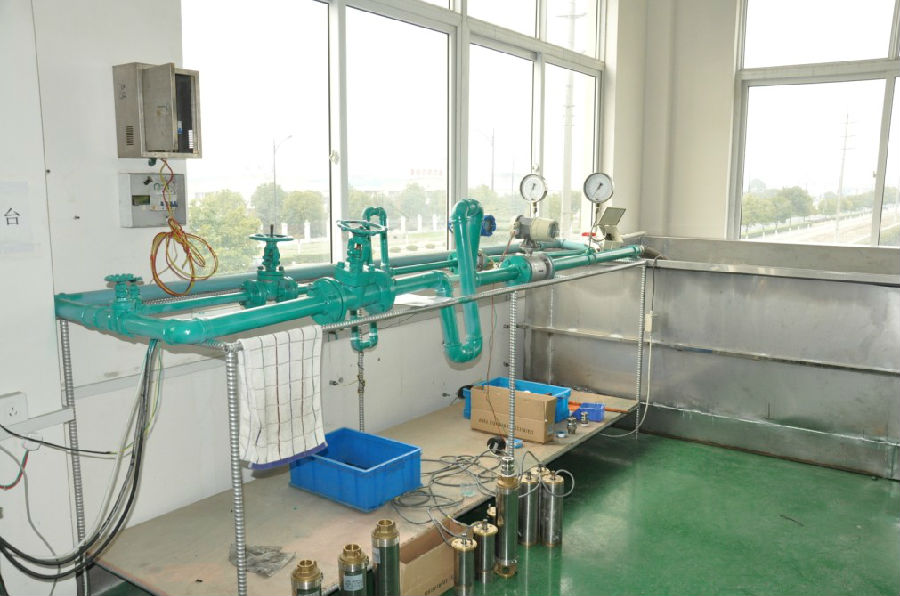
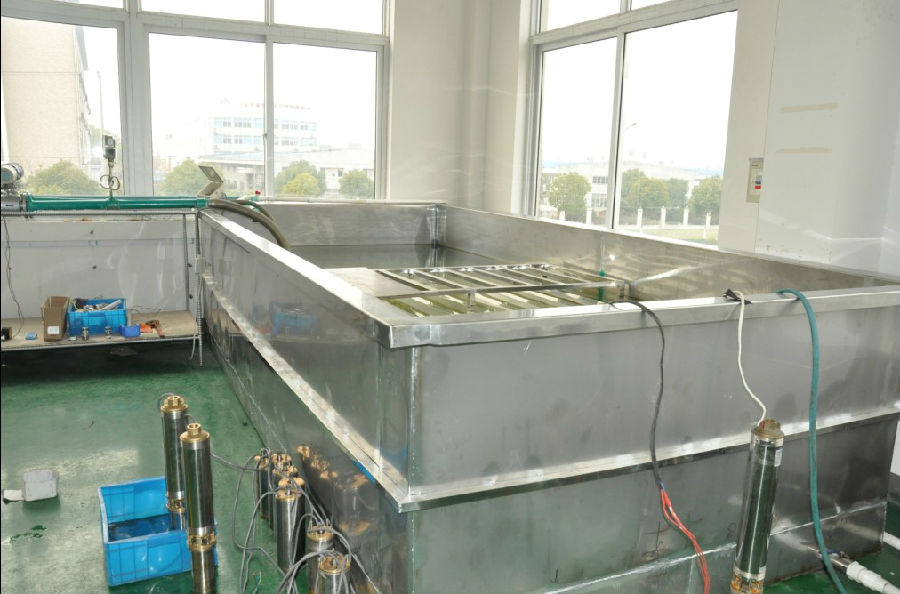
the application:
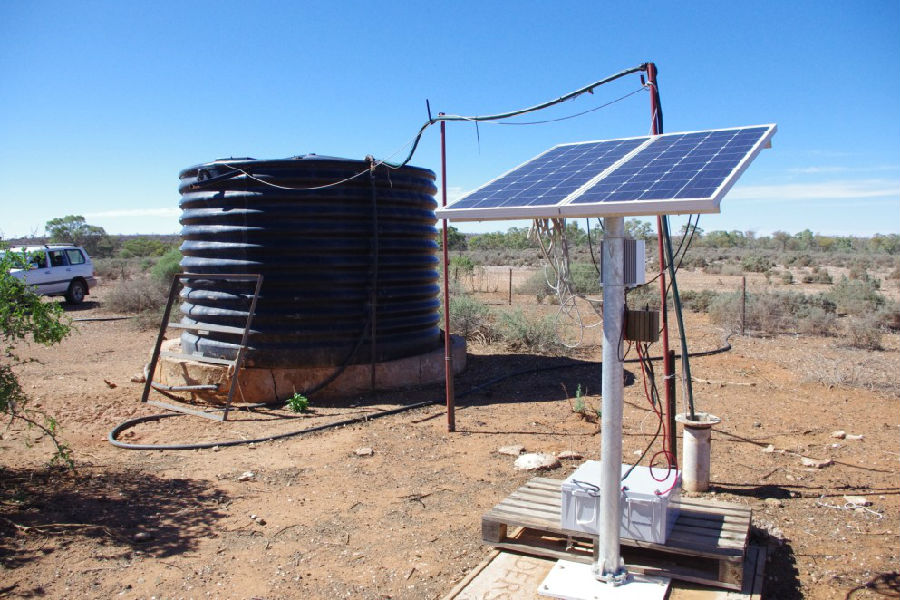
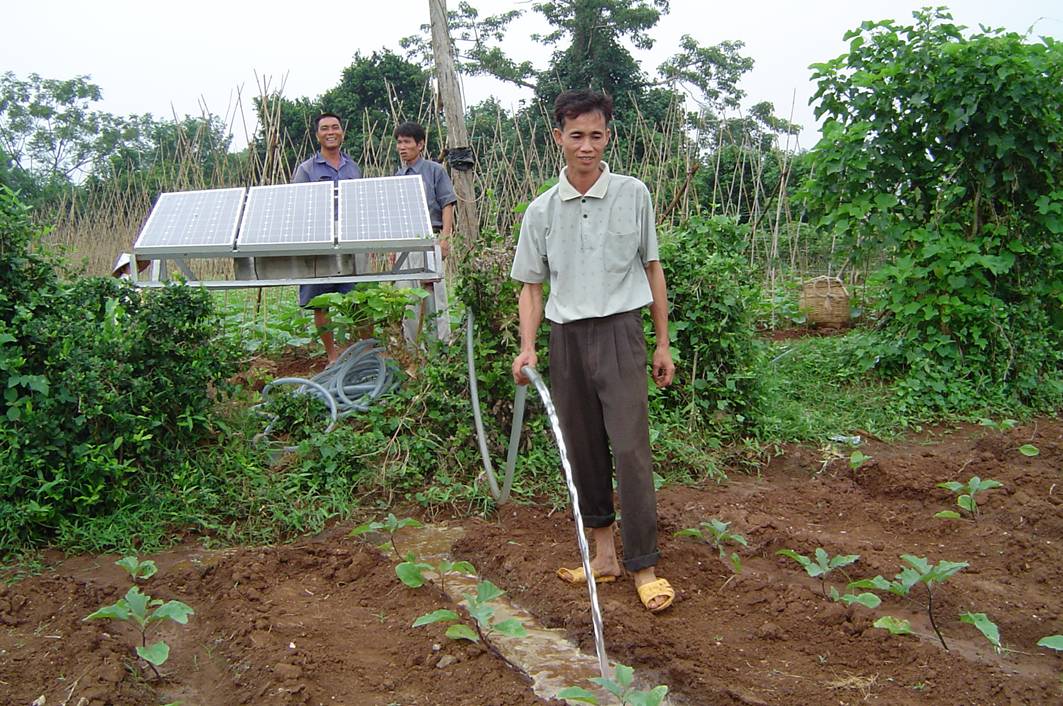
the package:
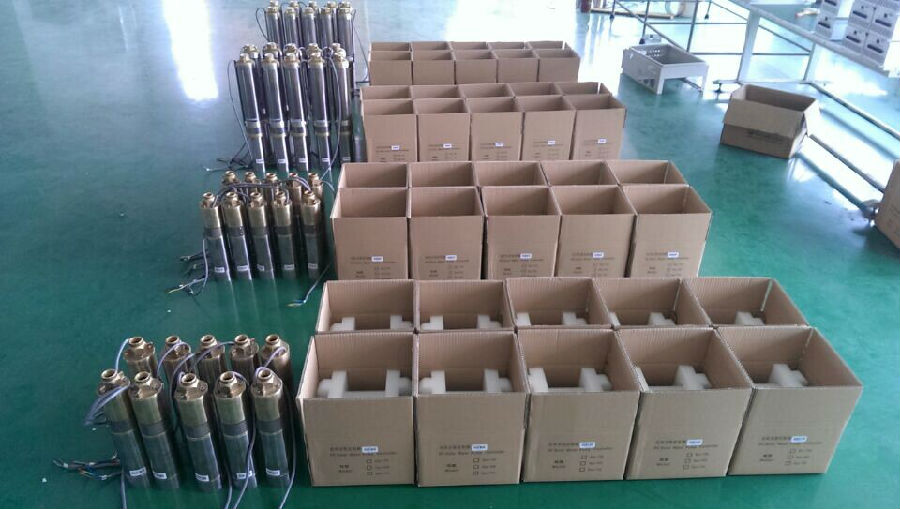
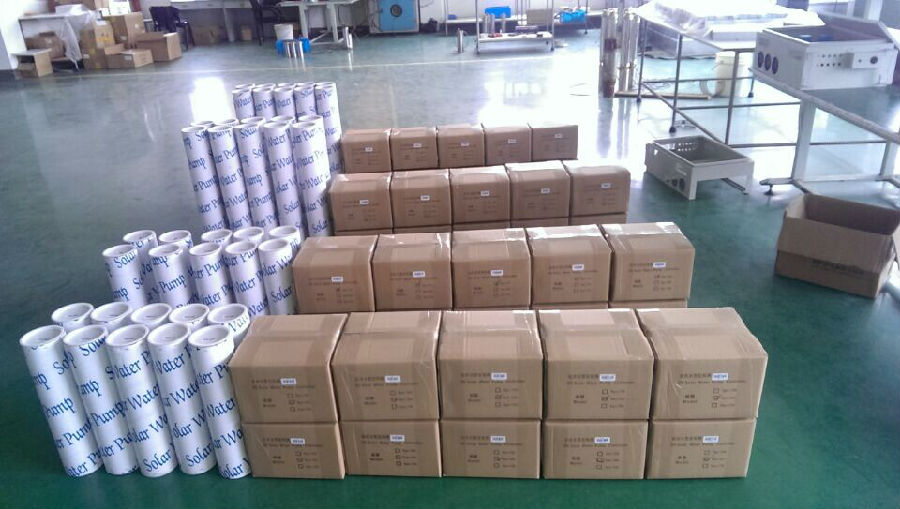

- Q:Can a solar pump be used for water supply in remote villages?
- Yes, a solar pump can be used for water supply in remote villages. Solar pumps are a sustainable and cost-effective solution for providing water in areas where there is no access to electricity. They rely on solar energy to power the pump, which means they can operate independently and reliably in remote locations. Additionally, solar pumps require minimal maintenance and have a long lifespan, making them suitable for sustainable water supply in remote villages.
- Q:Can solar pumps be used for water supply in dairy farms or livestock facilities?
- Yes, solar pumps can be used for water supply in dairy farms or livestock facilities. Solar pumps are a sustainable and cost-effective solution to provide water for irrigation and livestock needs. They can efficiently pump water from wells, rivers, or ponds, reducing the dependency on grid electricity or diesel generators. Additionally, solar pumps require minimal maintenance and have a long lifespan, making them a practical choice for water supply in dairy farms or livestock facilities.
- Q:Can a solar pump be used for water supply in recreational facilities?
- Yes, a solar pump can be used for water supply in recreational facilities. Solar pumps are an excellent alternative to traditional electric or diesel pumps as they harness the power of the sun to generate energy. They are cost-effective, environmentally friendly, and can provide a reliable water supply for various recreational facilities such as swimming pools, water parks, and sports fields. Solar pumps can efficiently draw water from wells, rivers, or other water sources, and deliver it to the desired location. They can be easily installed and require minimal maintenance, making them an ideal choice for water supply in recreational facilities. Additionally, solar pumps can be equipped with storage systems to ensure a constant water supply even during cloudy days or at night. Overall, utilizing solar pumps for water supply in recreational facilities not only reduces operational costs but also demonstrates a commitment towards sustainable and clean energy solutions.
- Q:What kind of warranty is offered for a solar pump?
- The warranty offered for a solar pump typically varies depending on the manufacturer and the specific model. However, most reputable solar pump manufacturers provide a warranty that covers defects in materials and workmanship for a certain period of time, usually ranging from 1 to 5 years. It is important to check the warranty terms and conditions to understand what is covered and any limitations or exclusions that may apply.
- Q:How does the water level affect the performance of a solar pump?
- The performance of a solar pump is heavily influenced by the water level. The depth of the water source from which the pump draws water directly affects how well it operates. If the water level is too low, indicating that the water source has dried up or is greatly depleted, the solar pump will struggle to effectively draw water. As a result, its performance will decline. It may have difficulty lifting the water to the required height or, in severe cases, be unable to pump any water at all. Consequently, the pump's flow rate and pressure will decrease, negatively impacting its ability to efficiently deliver water. Conversely, if the water level is sufficient and falls within the pump's rated capacity, the solar pump will perform optimally. It will draw water efficiently, maintain a consistent flow rate, and deliver water at the desired pressure. This ensures that the pump operates efficiently and meets the necessary demand for water. It is essential to note that continuously operating a solar pump at its maximum depth limit can also affect its performance. Drawing water from a deeper source necessitates the pump working harder, which can result in increased wear and tear, reduced lifespan, and potentially higher maintenance and operational costs. To summarize, the water level has a direct impact on the performance of a solar pump. Maintaining an adequate water level guarantees optimal performance, while low water levels can significantly hinder the pump's ability to deliver water effectively. Proper monitoring and management of water levels are critical for ensuring the efficient operation of a solar pump.
- Q:Can a solar pump be used in areas with limited access to water usage?
- Yes, a solar pump can be used in areas with limited access to water usage. Solar pumps are particularly well-suited for remote and off-grid locations where traditional electricity supply is unreliable or unavailable. They can efficiently pump water from underground sources such as wells, boreholes, or rivers, providing a reliable water supply for various purposes, such as irrigation, livestock watering, or domestic use. The use of solar energy eliminates the need for expensive fuel or electricity, making it a cost-effective and sustainable solution for water pumping in areas with limited access to water usage.
- Q:Can solar pumps be used for water supply in schools or public facilities?
- Yes, solar pumps can be used for water supply in schools or public facilities. Solar pumps are an efficient and sustainable solution for accessing clean water, especially in areas with limited or unreliable electricity supply. They can provide a reliable and cost-effective water supply for various applications, including drinking water, sanitation, and irrigation, making them suitable for schools and public facilities. Additionally, solar pumps require minimal maintenance and have a long lifespan, making them a viable option for sustainable water supply in these settings.
- Q:Can solar pumps be used for water supply in vineyards or orchards?
- Yes, solar pumps can be used for water supply in vineyards or orchards. Solar pumps are a sustainable and cost-effective solution for providing the necessary water for irrigation in agricultural settings. They can harness solar energy to power the pumps, reducing reliance on traditional electricity sources and minimizing operational costs. Additionally, solar pumps offer flexibility in installation and can be easily integrated into existing irrigation systems in vineyards or orchards.
- Q:Can a solar pump be used for irrigation in sandy or arid areas?
- Yes, a solar pump can be used for irrigation in sandy or arid areas. Solar pumps are designed to operate using solar energy, which is abundant in such areas. They can effectively draw water from underground sources and distribute it for irrigation purposes, even in sandy or arid conditions. The use of solar pumps in these areas helps to reduce dependency on traditional energy sources and provides a sustainable solution for irrigation needs.
- Q:Can a solar pump be used for flood control purposes?
- Yes, a solar pump can be used for flood control purposes. Solar pumps can be used to drain water from flooded areas, helping to control and mitigate the effects of flooding. The solar-powered system can provide a sustainable and cost-effective solution for flood control, especially in areas with limited access to traditional power sources.
1. Manufacturer Overview |
|
|---|---|
| Location | |
| Year Established | |
| Annual Output Value | |
| Main Markets | |
| Company Certifications | |
2. Manufacturer Certificates |
|
|---|---|
| a) Certification Name | |
| Range | |
| Reference | |
| Validity Period | |
3. Manufacturer Capability |
|
|---|---|
| a)Trade Capacity | |
| Nearest Port | |
| Export Percentage | |
| No.of Employees in Trade Department | |
| Language Spoken: | |
| b)Factory Information | |
| Factory Size: | |
| No. of Production Lines | |
| Contract Manufacturing | |
| Product Price Range | |
Send your message to us
DC Solar screw water pump
- Loading Port:
- Shanghai
- Payment Terms:
- TT OR LC
- Min Order Qty:
- -
- Supply Capability:
- 300 set/month
OKorder Service Pledge
OKorder Financial Service
Similar products
New products
Hot products
Related keywords










